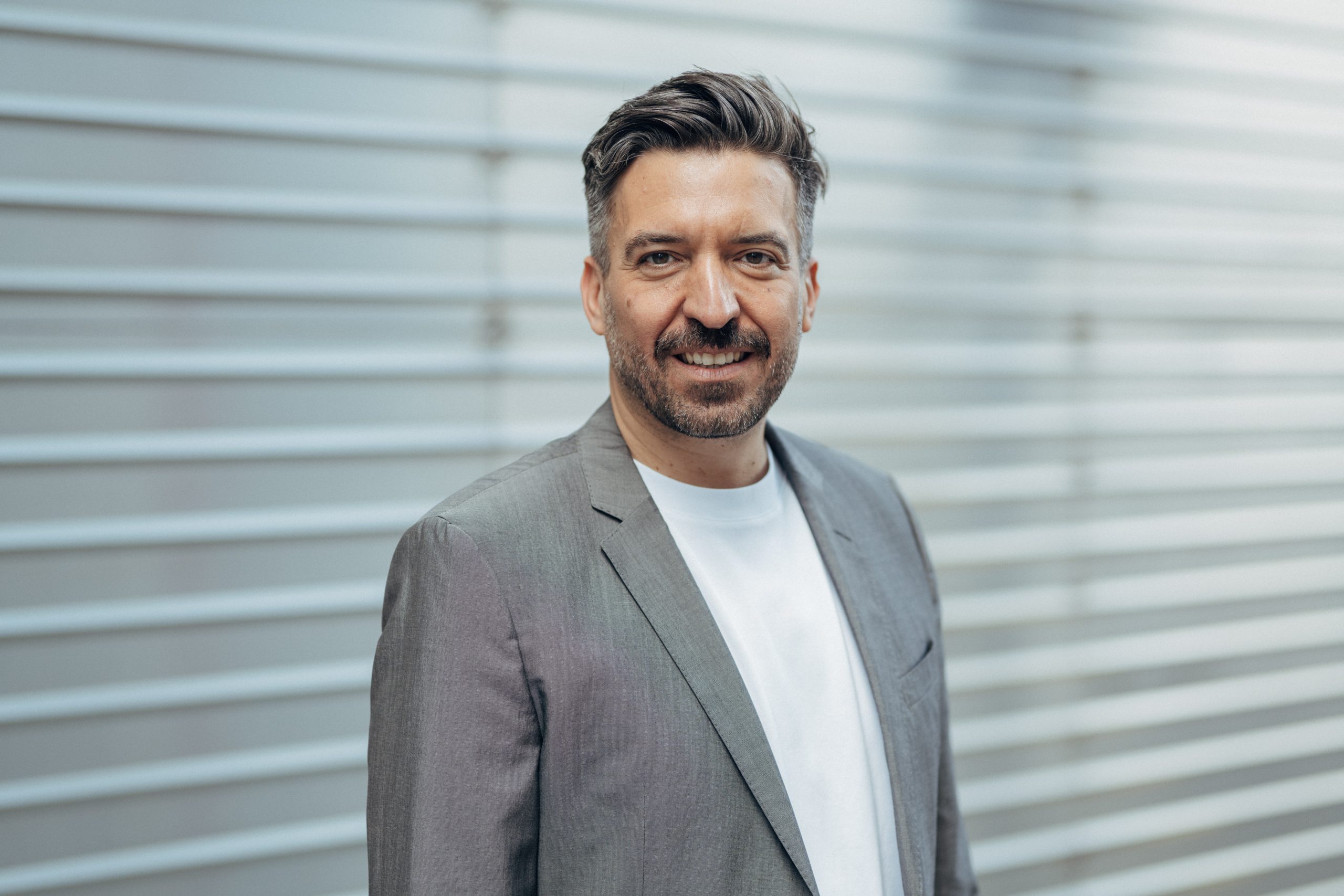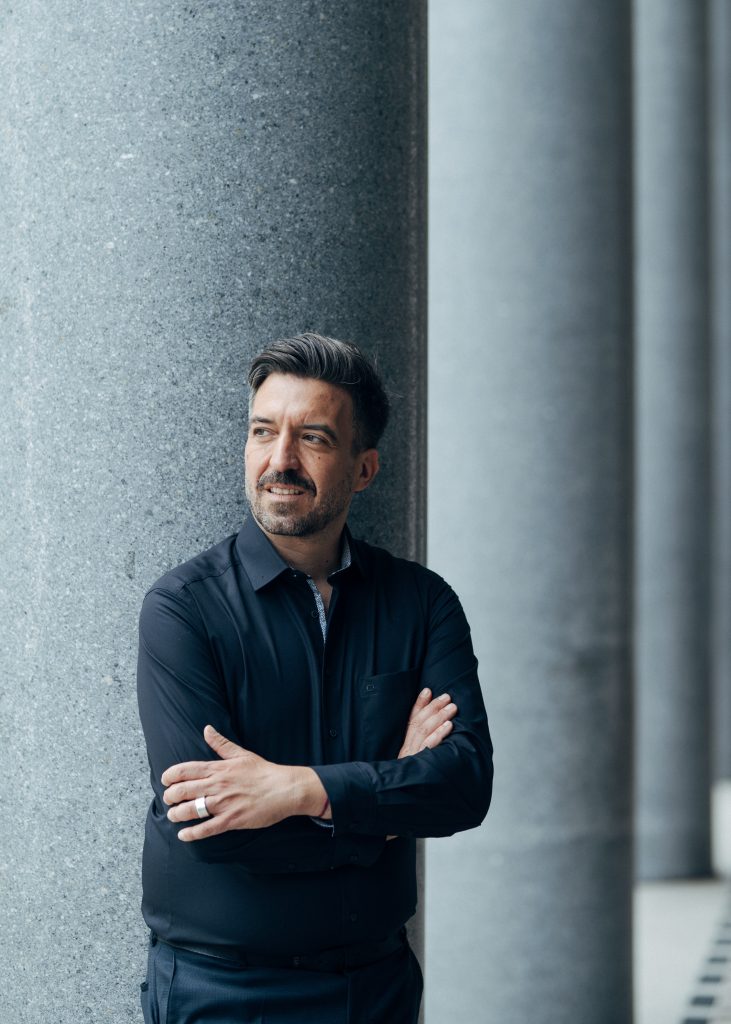Dominik Schneider (he/him)
‘I want to inspire men to ask themselves how they want to act in the future: Continue in the alpha mold or recognize our own diversity and find inner strength?’

I’m Dominik from Berlin. In my private life, I love contemporary theatre, spicy Chinese cuisine and big dogs. Professionally, I worked in marketing for almost 20 years in large international companies. Four years ago, I asked myself what the world urgently needs and what suits me well. That’s how I came up with the topic ‘Men and our stereotypical role models’. Today, under the headline ‘Beyond Alpha’, my passion is to inspire business men to self-reflect and encourage them to lead in a way that is good for them and makes them better role models and allies. I give talks, and workshops, and advise companies on issues specific to men.
For me as a man, diversity means breaking away from the ‘alpha mould’ – the ideal image of the always strong, emotionless man who is always at full throttle. It’s about asking myself who I really am as a man and allowing all my diverse characteristics to come through. I am convinced that this is good for ourselves, but also an important step for the people we work with. Because only when men recognize their own diversity can they also better appreciate external diversity and support equal participation, for example.
I have observed that there is a lot going on among men at the moment: the social discourse about men and role models is reaching the business world, leadership qualities such as empathy or self-reflection are not ‘classically male’ and rising rates of depression and heart attacks show that the current mode is not healthy for us either. These dynamics confront men with completely new challenges and questions.
I would like to inspire men to ask themselves how we want to act in the future: Continue in the alpha template or recognize our own diversity and find inner strength? The positive consequence of this work is a corporate culture in which everyone can act authentically and contribute without fear.
Looking back, I realised that since the beginning of my career I have been confronted again and again, sometimes subtly, sometimes very directly, with traditional male role expectations.
I remember my very first feedback meeting, six months into my first job. My boss at the time became very emotional and told me that I should be much louder in meetings and run the agency much more aggressively. I remember how much stress I felt trying to fulfil this requirement.
Today I know that I have completely different qualities and that I can be successful with them.
At the time, I thought I was alone with such experiences. Today, I know from my work that there are a lot of men who put on a mask in the morning to play the role of the strong alpha.

A classic topic in my conversations is the role of work: an entrepreneur from the media industry who worked 80 hours a week was convinced that he did this out of love for his work. During our work together, it then became clear that he was not doing this entirely of his own free will, but that the supposed ideal image of an entrepreneur who works until 4 a.m. and really gives everything for his company was putting him under pressure. And whose exhaustion is proof of his commitment.
He found out how he could achieve more balance and find other inspiring topics. He shared this openness with his partner and his team, which also opened up new paths for them.
Many men believe they are perfect supporters of diversity without realizing how much they benefit from unconscious thinking and male privilege. In my workshops, I offer spaces for reflection and practical impulses to create aha moments and a real sense of responsibility. I always emphasize the opportunities and do not work with accusations, as this is much more effective.
